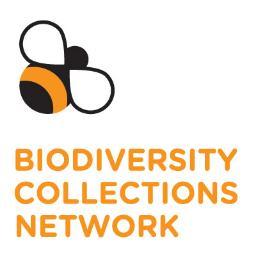Biodiversity Literacy in Undergraduate Education: BLUE
Tentative Workshop Agenda
Biodiversity Institute, University of Florida
November 18-19, 2016
November 18, 2016
|
8:30 |
Introduction of participants I. Current affiliation II. Interest for you and community you represent a. What would you hope to get out of your involvement III. Past experience with RCNs and RCN-UBE |
|
9:00 |
Introduction to the Working Group and Goals |
|
9:15 |
Brainstorm current data resources and educational initiatives |
|
10:00 |
Break |
|
10:20 |
Defining a need for Data Literacy (Sam Donovan) |
|
12:00 |
Lunch |
|
12:45 |
Generating a manuscript (Sam Donovan) I. Next steps II. Timeline |
|
1:45 |
Discussion of Vision for RCN-UBE By combining the unique viewpoints and strengths of these separate communities, we will work to identify core data competencies, describe learning progressions to produce data literate biologists and citizens, provide evidence based data literacy materials, and initiate an effective strategy for sustained implementation. |
|
2:30 |
Discussion of Goals for RCN-UBE I. Facilitate a community of data scientists, biodiversity researchers, biology educators and implementation scientists interested in core transferrable data literacy standards. II. Identify key foundational data literacy standards and gaps in core undergraduate biology education. III. Organize collective data literacy efforts to promote efficient use of resources, common goals and productive collaboration. IV. Integrate resources and build effective and accessible core introductory materials for use, dissemination and implementation in introductory core undergraduate biology curriculum. V. Apply an implementation science framework to sustain effective data literacy education in the undergraduate biology core curriculum. |
|
3:00 |
Break |
|
3:20 |
Discussion of Five Themes for RCN-UBE I. Define, assess, and address Community needs (including skills) - Implementation science II. Defining biodiversity literacy - extrapolating learning objectives III. Concept inventory - validated assessment of core biodiversity literacy skills IV. Build modules via FMN - translate materials, bring in science education (build extra community) V. Develop people who can use and implement modules |
|
4:45 |
Wrap up and Goals for Day 2 |
November 19, 2016
|
8:30 |
Review of Day I and Goals for Day II |
|
8:45 |
Brainstorm Evidence of need for this RCN-UBE (Brainstorm) |
|
9:15 |
Discuss of groups of investigators I. organismal, ecological, and environmental researchers who use and generate large aggregated datasets to study biodiversity (multidisciplinary); II. data scientists/big data initiatives who are familiar with the complexities of big data; III. biology educators who can translate biodiversity data into an effective classroom activity with explicit learning outcomes; IV. implementation scientists who can promote the uptake, sustainability, and effective use of evidence-based classroom activities, V. Academic societies that work to sustain discipline related efforts in research and education. VI. Diversity VII. International |
|
10:00 |
Break |
|
10:20 |
Delineate Activities of RCN-UBE I. Five year plan |
|
12:00 |
Lunch |
|
12:45 |
Delineate Activities of RCN-UBE I. Theory of Change Model |
|
3:00 |
Break |
|
3:20 |
Management Plan I. Dissemination (QUBESHub or Website) II. Structure (Core Team, Steering Committee, Participants, Planning Teams, Supporting organizations) III. Funding |
|
4:00 |
Roles and Tasks Moving Forward |
Post-It Lists:
Data sources
Educational Initiatives
Groups and communities to involve
Letters of collaboration
Groups and Networks we can represent in senior personnel
Participant List (identify key participants)
Questions for Chris Meyer
Parking Lot (items we must remember to address)
Task List
Graphics
